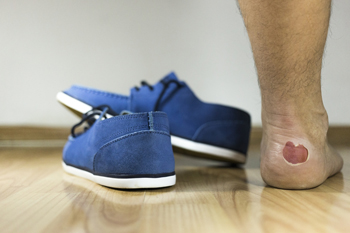
Friction blisters, often just a minor annoyance, can seriously hinder athletes, soldiers, and others who spend a lot of time on their feet. These blisters form from repeated rubbing and are filled with fluid. They are particularly common in athletics and the military due to activities like marching, running, and jumping. While some people are more likely to get blisters, there are ways to reduce the risk. To prevent blisters, it is recommended to gradually increase the intensity of activities and use the same gear. Choosing synthetic, moisture-wicking socks are better than cotton for keeping feet dry. Shoe fit is also important, as shoes should fit well and have adequate room for toes. Custom-made insoles can help with blisters, and skin coverings and tapes that absorb friction can also be helpful. If foot blisters are impacting your daily activities, it is suggested that you make an appointment with a chiropodist for more advanced treatment.
Blisters can usually be treated at home, however, if you have recurring blisters or experience significant discomfort or pain, please consult with one of the chiropodists from Complete Family Footcare & Therapy. Our clinicians will assess your condition and provide you with quality foot and ankle treatment.
What Is a Blister?
A blister is a small pocket of fluid in the upper skin layers and is one of the body’s natural responses to injury or pressure. Blisters can also result from burns, fungal or viral skin infections, and the feet are particularly prone due to ill-fitting footwear and friction. Friction on the skin causes the upper layer of skin to separate from the lower layers. The space that this separation creates then becomes filled with a liquid called serum, which protects the lower layers of skin.
Treatment
If you notice a blister on your foot, you can cover it with a soft bandage or dressing to protect it. Popping the blister is discouraged. Doing so exposes the raw skin underneath it to bacteria and also raises the risk of infection. If a blister pops naturally, let it drain before covering it with a bandage. Blisters usually heal on their own or with home treatment, however, if your blister is recurring, very painful, or appears infected, it is recommended that you see a chiropodist for treatment.
Prevention
You can help to prevent blisters by wearing comfortable, well-fitted shoes. Keep your feet dry by wearing moisture-wicking socks and dust your feet with talcum powder if they tend to get sweaty. If you have areas on your feet that are more susceptible to blisters, you might be able to prevent the blister from forming by covering it with a pad.
If you have any questions, please feel free to contact our offices located in . We offer the newest diagnostic and treatment technologies for all your foot care needs.
